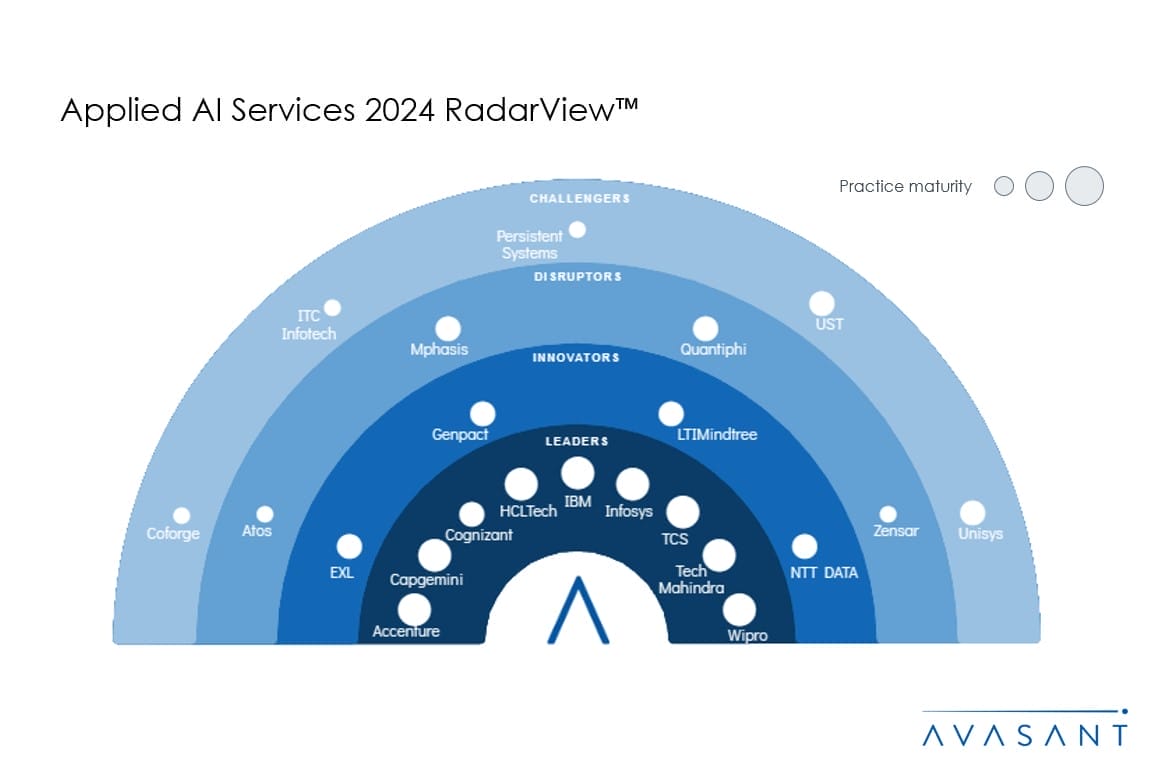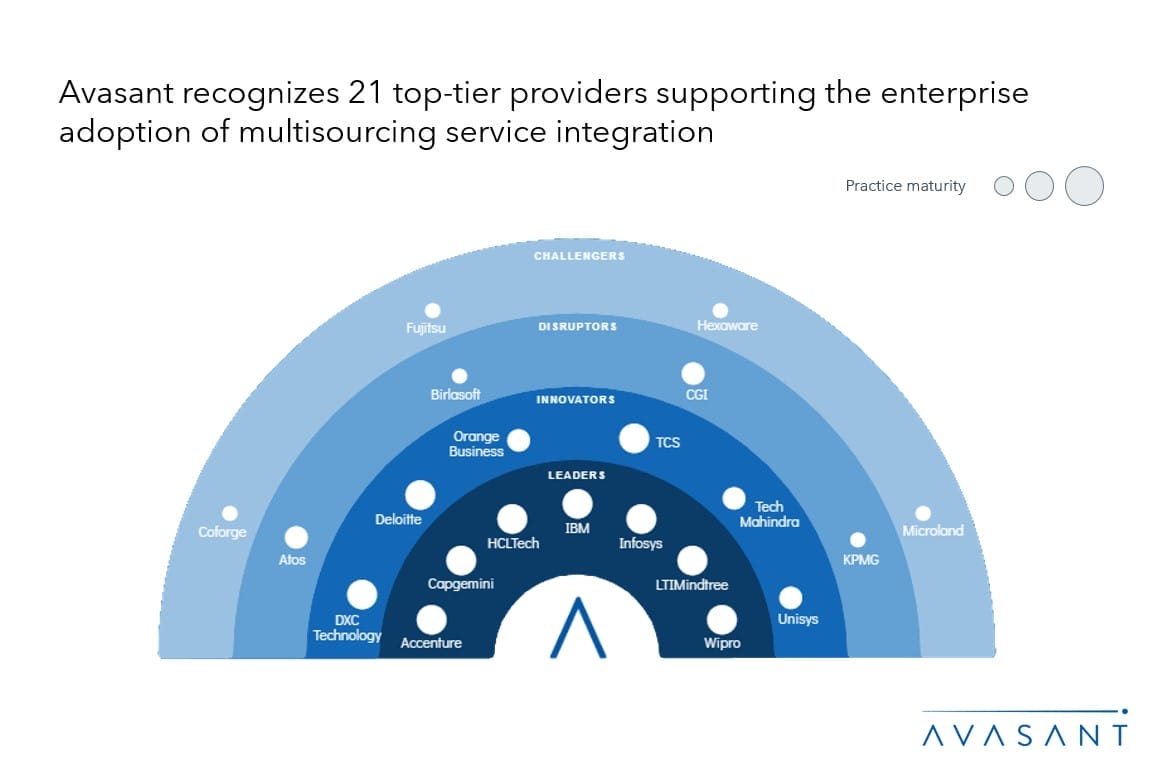Latest Reports
-
![Digital Workplace—The Top Tech Trend for 2024 Tech Trends 2024 - Digital Workplace—The Top Tech Trend for 2024]()
Digital Workplace—The Top Tech Trend for 2024
Digital workplace technologies, a relatively new category in our yearly study of technology trends, receives the best customer satisfaction score from our survey participants. Digital workplace technologies are a set of tools and electronic capabilities to allow workers to communicate and collaborate virtually from anywhere. The pandemic originally served as a springboard for the surge in this technology. But many companies, recognizing the value these tools provided during remote work, are now adopting or expanding their use to support ongoing remote or hybrid work models. This Research Byte provides a look at the customer satisfaction rating for digital workplace technologies, as well as an overview of our Technology Trends 2024.
May, 2024
-
![Strategic Solutions for a Struggling Payments Platform — A Case Study in Fintech Product Image Strategic Solutions for a Struggling Payments Platform — A Case Study in Fintech - Strategic Solutions for a Struggling Payments Platform — A Case Study in Fintech]()
Strategic Solutions for a Struggling Payments Platform — A Case Study in Fintech
A financial technology client in Europe is facing a significant challenge with maintenance and operations of its payments platform. Despite its best efforts, the platform has not been profitable, and the client is seeking ways to reduce operating expenses. In this case study, we will explore the options that the client is considering, including outsourcing IT operations and selling the intellectual property associated with the payment platform and how Avasant's standard approach on strategic sourcing was applied to this project.
May, 2024
-
![The Benefits of Software Supported Optimized Governance Product Image The Benefits of Software Support - The Benefits of Software Supported Optimized Governance]()
The Benefits of Software Supported Optimized Governance
Many organizations rely on a diverse mix of vendors and contingent workers to support their business operations and strategic objectives. However, managing these external resources can pose significant challenges in terms of financial, operational, and security performance. Avasant was engaged by a large North American healthcare organization that struggled with this issue.
May, 2024
-
![Deloitte’s Global Restructuring – Streamlining for the Future Product Image - Deloitte’s Global Restructuring – Streamlining for the Future]()
Deloitte’s Global Restructuring – Streamlining for the Future
Deloitte’s decision to undertake its most significant restructuring in a decade reflects the challenges faced by major consultancy firms amid an expected market slowdown. The goal of the restructuring is to reduce the number of Deloitte’s primary business units from five to four, streamlining its operations. The largest Big Four professional services firm is planning to reorganize its global structure and streamline its advisory businesses to reduce the organizational complexity and free up more partners to work with clients, driven by the need to cut costs and simplify operations amid anticipated market challenges.
May, 2024
-
![Decentralized AI in Healthcare: Preparing for ‘GOD AI’ and Its Agents decentralized AI - Decentralized AI in Healthcare: Preparing for ‘GOD AI’ and Its Agents]()
Decentralized AI in Healthcare: Preparing for ‘GOD AI’ and Its Agents
The god of healthcare is coming. And he’s bringing his agents, millions of them. At least, this was the vision of Ramesh Raskar, Associate Director, MIT Media Labs, as he laid it out at the most recent TiEcon conference here.
May, 2024
-
![ESG Experts Call Out Lack of Meaningful Progress ESG panel - ESG Experts Call Out Lack of Meaningful Progress]()
ESG Experts Call Out Lack of Meaningful Progress
According to some environmental, social, and governance (ESG) experts, the push toward ESG resembles what someone once said about the weather: Everyone talks about it, but no one does anything about it
May, 2024
-
![Integrating Generative AI with SAP SuccessFactors to Elevate Employee Experience Moneyshot 5 - Integrating Generative AI with SAP SuccessFactors to Elevate Employee Experience]()
Integrating Generative AI with SAP SuccessFactors to Elevate Employee Experience
Banking upon generative AI’s content summarization and contextual response generation capabilities, organizations are keen on integrating generative AI (Gen AI) solutions with SAP SuccessFactors to drive efficient HR processes and elevate employee experience. These solutions help tailor employee communications, resolve HR and employee benefits-related queries, and automate key recruitment activities. Moreover, service providers are expediting implementation and enabling precise project scheduling through preconfigured solutions that offer standardized HR and payroll processes, industry-specific configurations, and structured data migration from legacy HR systems.
April, 2024
-
![Navigating Pitfalls in the Transition to IT Managed Services Product Image Tech Innovatr - Navigating Pitfalls in the Transition to IT Managed Services]()
Navigating Pitfalls in the Transition to IT Managed Services
In the T&M model, the customer agrees to pay the contractor based on the time spent on the project and the cost of materials used. This model is often used when the scope of the project is not well-defined or is subject to change. It provides flexibility for both the customer and the contractor, as the customer can adjust the scope of the project as needed, and the contractor is compensated for any additional time or materials required. However, this model does not always work in a managed services environment.
April, 2024
-
![Maximizing Value in Multisourcing Environments with Streamlined Governance Slide1 3 3 - Maximizing Value in Multisourcing Environments with Streamlined Governance]()
Maximizing Value in Multisourcing Environments with Streamlined Governance
Multisourcing is a strategy that involves outsourcing different services to multiple vendors. However, around 85% of organizations face significant challenges such as ineffective communication and lack of cross-supplier collaboration while executing multisourcing service integration (MSI) services. Service providers take this narrative forward by implementing a comprehensive set of MSI capabilities such as effective risk mitigation strategies, centralized governance, and consistent service level agreements. Additionally, service providers also leverage generative AI for MSI services to streamline workflows, offer data-driven insights, and accelerate process execution.
April, 2024
-
![Optimizing Cost Savings in the Healthcare Industry through Nearshore Outsourcing: A Case Study RB Product Healthcare Industry - Optimizing Cost Savings in the Healthcare Industry through Nearshore Outsourcing: A Case Study]()
Optimizing Cost Savings in the Healthcare Industry through Nearshore Outsourcing: A Case Study
The healthcare industry is facing increasing pressure to reduce costs and improve efficiency, while maintaining high standards of quality and patient satisfaction. One of the ways that healthcare organizations can achieve these goals is by outsourcing some of their non-core functions to external vendors, such as IT, billing, customer service, data entry, and transcription. However, traditional offshore outsourcing models often pose challenges in terms of communication, cultural differences, time zones, and regulatory compliance. In this case study, we present how a leading healthcare provider in the United States leveraged nearshore outsourcing to optimize its cost savings and operational performance.
April, 2024
-
![How to Set Up a Transformation Office for a Successful ERP Implementation How to Set Up a Transformation Office for a Successful ERP Implementation - How to Set Up a Transformation Office for a Successful ERP Implementation]()
How to Set Up a Transformation Office for a Successful ERP Implementation
Enterprise resource planning (ERP) systems are complex and powerful software solutions that integrate and automate various business processes across an organization. They can provide significant benefits in terms of efficiency, productivity, data quality, and customer satisfaction. However, implementing an ERP system is not a simple task. It requires a substantial investment of time, money, and resources, and it involves a major change in the way the organization operates. Therefore, it is crucial to plan and manage the ERP implementation project carefully and strategically, to avoid common pitfalls and risks, and to ensure the desired outcomes are achieved.
April, 2024



















